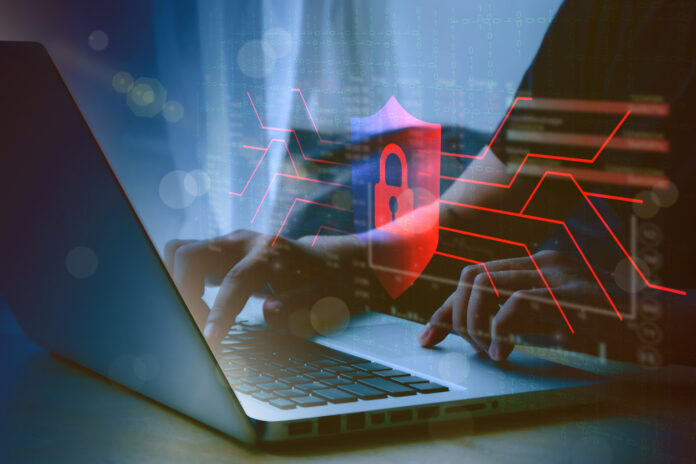
We’re living in a day and age where digital piracy has become more and more prevalent. As such, it’s in our best interests to understand its potential impact on us as individuals and the U.S. economy overall. Piracy affects a wide range of industries, people, and economies, including the motion picture and music industries, in a major way.
Below, we’ll uncover the economic impact of online piracy and what you can do about it as a concerned citizen.
Digital Piracy Stats to Know
Acts of digital piracy, including the illegal streaming of TV shows and movies, have grown significantly with the increase of streaming services like Netflix, Amazon, and other sites (some of which are very dangerous).
That’s not it though, social media platforms also give pirated content the life it would have otherwise not received. Though rarely considered, the economic impact of this type of activity goes well beyond the entertainment sector. It also influences things like international trade, GDP, and economic growth.
To get a better understanding of its full effect, here are a few piracy statistics to consider:
- Pirated videos, including TV series and movies, receive more than 230 billion views each year.
- Revenue losses that can be attributed to online piracy have increased by more than 500% since 2010.
- Some estimates suggest that there are a minimum of 223,000 jobs lost annually due to piracy.
- Illegal downloads of copyrighted materials garner nearly 24% of bandwidth globally.
- Worldwide revenue losses attributed to digital piracy are estimated to range between $40-$97 billion.
How Piracy Harms the Economy
Piracy of digital assets might seem like small potatoes, but as the statistics suggest, it’s a big detriment to the U.S. economy, affecting millions of people across multiple industries.
The Loss of Revenue and Jobs
One way or another, pirated materials typically result in lost revenue. While the damage is much worse for iconic American cultural exports (i.e., movie, TV, and music industries), the harm goes much deeper.
Here’s an example: The movie industry’s box office sales are directly damaged by digital piracy. However, the fallout also affects streaming services, cable providers, and distributors alike. Unfortunately, this loss of revenue results in layoffs and fewer jobs in marketing, retail, and manufacturing.
Such a massive revenue shrinkage also leads to much lower tax revenues and hinders economic growth.
Impact on Intellectual Property and Innovation
The backbone of creative industries is the IP (intellectual property). When pirates undermine these fundamental rights, it can discourage creatives (i.e., artists, producers, writers, etc.) from investing time and resources into their projects.
Not only can this lead to a lack of variety, but it also decreases the quality of creative works. The pain of piracy doesn’t stop there. It also disincentivizes potential investors from funding new and exciting projects.
Effects on International Trade
Digital piracy doesn’t stop at the borders. In many cases, that’s where it becomes most profitable. That being said, U.S. trade relations with countries where piracy is known to be rampant (i.e., China and India) are further complicated by the need and desire to enforce intellectual property rights — which isn’t always possible.
Piracy also has a major impact on multilateral trade agreements and global economic policies. For the most part, the U.S.’s stance on intellectual property protection and counterfeiting plays a significant role when engaging in trade negotiations and economic relations globally.
Social Costs and Policy Challenges
We’ve touched on the micro and macro economic costs of pirated materials, but what about the social costs? In fact, policymakers have known for a long time that internet piracy has an incredibly powerful impact on our society. This is why they have to carefully balance policies that encourage innovation, internet freedom, and protecting IP rights.
Further, it’s not exactly easy to enforce internet piracy laws and cooperate with other nations. Not only does digital piracy normalize stealing intellectual property, but it also undercuts the value of content creators and their work.
The Methodology of Piracy
Since the days of AOL and Napster, the methodology of online piracy has become much more sophisticated and harder to track. In today’s world, pirates use advanced technologies to evade detection. Additionally, the meteoric rise of decentralized networks and apps complicates global enforcement efforts.
That being said, providers of pirated content must continually adapt. They’re known to use methods like peer-to-peer sharing, encrypted file transfers, and more. Their advanced tactics make traditional anti-piracy measures less effective, and in some cases, totally useless.
Economic Impact Beyond the Entertainment Industry
The impact of piracy extends beyond the entertainment industry. It affects software developers, book publishers, and even educational content providers. Lost revenue in these sectors translates to reduced funds for research and development, ultimately slowing economic growth and innovation across these fields.
The Effect of Piracy on Consumer Trust
Once you’ve been “burned” once by downloading pirated materials that cause malware, identify theft, etc., you’re much less likely to trust digital companies in the future — even legit ones. This form of distrust can have an almost hidden long-term negative impact on the market as it affects both individual spending and the overall global economy at the same time.
Impact on GDP and Economic Data
A nation’s Gross Domestic Product (GDP) is its lifeblood. That said, when digital privacy siphons off millions or billions of dollars, it can have a massive impact on a country’s economy as well as distort available economic data. These “hidden figures” can result in misguided policies, misunderstood opportunities, and hinder economic growth from the top down.
How You Can Help
There’s no one-size-fits-all solution to digital piracy, but as a consumer, you can play a critical role in combating the spread of pirated media. Here’s how:
- Choose Legal Streaming Services: Support legal and legit streaming services for you and your family’s entertainment needs.
- Educate Yourself and Others: The effect of piracy cuts wide and deep. You can help shut it down by sharing this knowledge via social media and in your community.
- Report Pirated Content: If you do happen to come across pirated content, report it to the relevant authorities or platforms. It may be tempting to illegally download or stream pirated content, but just think about the societal impacts as well potential malware you could be subjecting yourself to.
- Visit Legitimate Content Sources: Visit StreamSafely’s Where to Watch page to find legal sources for streaming your favorite content.
By being a conscious consumer and understanding the whole picture (i.e., the social and economic cost of piracy), we can help to mitigate its effects and promote a healthier economy and more vibrant creative industry.




